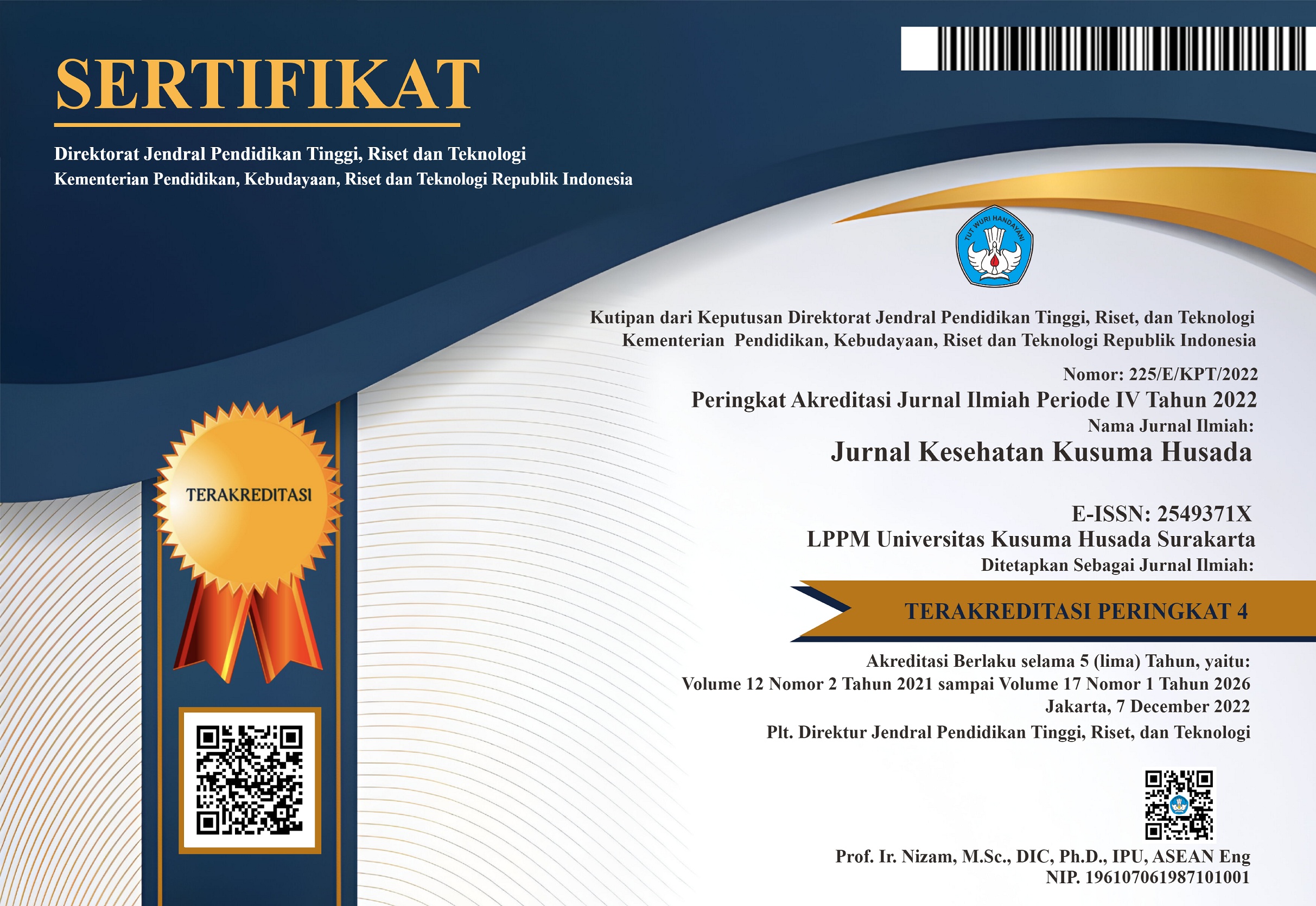EFEKTIFITAS E-KADARSI (KELUARGA SADAR HIPERTENSI) TERHADAP EVALUASI TUGAS KELUARGA PASIEN BERISIKO KRISIS HIPERTENSI
DOI:
https://doi.org/10.34035/jk.v15i2.1482Keywords:
e-KADARSI, Hypertension, FamilyAbstract
Peningkatan prevalensi hipertensi setiap tahunnya diperlukan strategi secara global dalam pencegahan dan pengendalian. Tatalaksana hipertensi melalui pendekatan keluarga menjadikan kemampuan mengenali masalah dan pemecahan masalah lebih menyeluruh. Salah satu implementasi yang dapat diberikan adalah pemberian edukasi berbasis online ditujukan pada keluarga dengan hipertensi. Tujuan penelitian untuk mengetahui keefektifan e-KADARSI (Keluarga Sadar Hipertensi) Terhadap Evaluasi Tugas Keluarga Pasien Hipertensi. Metode yang digunakan pada penelitian ini adalah quasy eksperimental dengan pretest and posttest with control design. Jumlah subjek dalam penelitian ini adalah 60, terdiri 30 kelompok kontrol dengan intervensi standart dan 30 kelompok intervensi yang akan diberikan implementasi e-KADARSI dan diukur evaluasi tugas keluarga dengan kuisioner sebelum dan sesudah diberikan. Hasil analisa menunjukkan bahwa e-KADARSI efektif dalam evaluasi tugas keluarga dengan selisih nilai rata rata kedua kelompok sebesar 28.34 pada nilai pre test dan post test. Kesimpulan e-KADARSI sebagai tatalaksana yang tepat dalam upaya pencegahan krisis hipertens ditujukan pada keluarga.
The increasing prevalence of hypertension every year requires a global strategy for prevention and control. Management of hypertension through a family approach makes the ability to recognize problems and solve problems more comprehensive. One implementation that can be provided is providing online-based education aimed at families with hypertension. The aim of the research is to determine the effectiveness of e-KADARSI (Hypertension Awareness Family) in evaluating the duties of families of hypertension patients. The method used in this research was quasi-experimental with pretest and posttest with control design. The number of subjects in this study was 60, consisting of 30 control groups with standard intervention and 30 intervention groups who would be given the implementation of e-KADARSI and measured evaluation of family tasks with questionnaires before and after being given. The results of the analysis show that e-KADARSI is effective in evaluating family tasks with a difference in the average score between the two groups of 28.34 in the pre-test and post-test scores. Conclusion e-KADARSI as appropriate management in efforts to prevent hypertension crises is aimed at families.
References
Downloads
Published
Issue
Section
License
Copyright (c) 2024 Jurnal Kesehatan Kusuma Husada

This work is licensed under a Creative Commons Attribution 4.0 International License.
The copyright of the published articles belongs to Jurnal Kesehatan Kusuma Husada.

This work is licensed under a Creative Commons Attribution 4.0 International License.
















